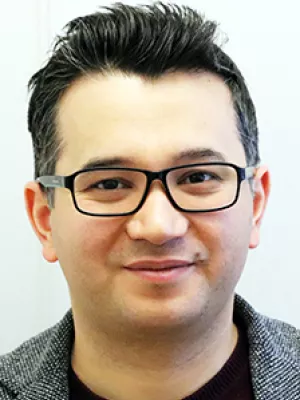
Rustamjon Urinboyev
Docent

Smartphone Transnationalism in Non-Western Migration Regimes: Transnational Ethnography of Uzbek Migrant Workers in Russia
Författare
Redaktör
- Rano Tuareva
- Rustamjon Urinboyev
Summary, in English
There is an extensive research that explores the reproduction of transnational communities and relations, with a particular focus on locality, identity and culture. However, the existing research emanates from the case studies of immigrant communities in Western-type democracies, while we know little about migrant transnationalism in non-Western migration regimes such as Russia, where migrant workers are subjected to numerous human rights abuses and cannot publicly and overtly engage in transnational practices. Moreover, the role of new media, such as smartphones and social media, in migrant transnationalism remains under-researched. Given the socio-political and cultural differences between Western and post-Soviet societies, we cannot assume that the methodological tools and theoretical perspectives developed in Western contexts are necessarily applicable to Russia, where the repressive socio-political environment, the lack of democratic culture and arbitrary law enforcement leave little room for migrant legalization, transnational activism and collective mobilization. The above considerations inform my position in this chapter, which is intended to contribute to the debates on migrant transnationalism and informality literature in two distinct ways. I present the results of extensive multi-sited ethnographic fieldwork undertaken in Moscow, Russia, and Ferghana region, Uzbekistan. My case study looks at Uzbek migrants in Moscow and their families and communities in Shabboda village in Ferghana. Unlike in Western countries, where migrants establish relatively functional transnational communities, there is little in the way of ‘Uzbek transnational community’ in Russia due to the restrictive legal environment and anti-migrant sentiment. Even though Uzbek migrants’ transnational activism is hardly visible in public places, I argue that rapid improvements in communication technologies (e.g. smartphones and social media) have enabled Uzbek migrants to stay in touch with their home societies, as well as create permanent, smartphone-based translocal communities in Moscow, usually centred around migrants who hail from the same mahalla or village in Uzbekistan. The existence of this smartphone-based transnational environment helps migrants cope with the challenges of musofirchilik (being alien) and avoid or manoeuver around structural constraints such as complicated residence registration and work permit rules, social exclusion, racism and the lack of social security.
Avdelning/ar
- Rättssociologiska institutionen
Publiceringsår
2021-05-27
Språk
Engelska
Sidor
89-113
Publikation/Tidskrift/Serie
Routledge BASEES series
Fulltext
- Available as PDF - 356 kB
- Download statistics
Dokumenttyp
Del av eller Kapitel i bok
Förlag
Routledge
Ämne
- International Migration and Ethnic Relations
- Law and Society
Status
Published
Projekt
- Migration, Shadow Economy and Parallel Legal Orders in Russia
- Migration and Legal Cultures in Post-Soviet Societies: Ethnographic Study of Uzbek Migrant Workers and Their Families
- Legal Cultures and Business Environments in Central Asia
- The Multilevel Orders of Corruption - Insights from a Post-Soviet Context
ISBN/ISSN/Övrigt
- ISBN: 978-1-032-01014-4
- ISBN: 978-1-003-17676-3